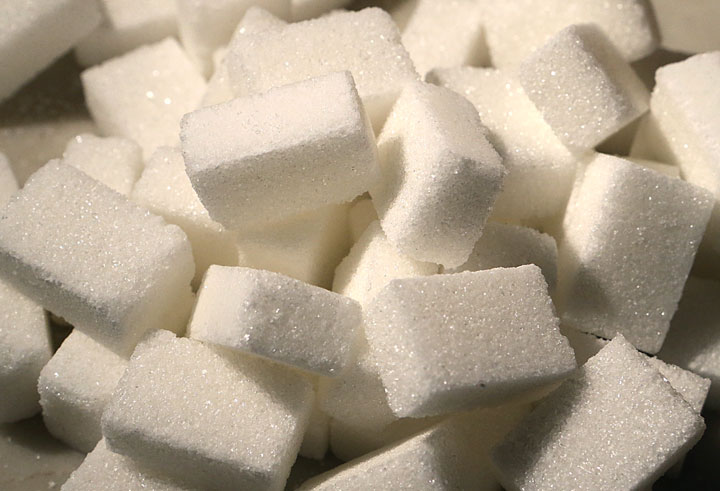You’ve been told countless times to limit the amount of sugar you eat in a day, you read nutrition labels for ‘sugar’ in the ingredients list – but are you certain you’re actually avoiding it?

A simple scan of a food label isn’t so simple at all when you realize that ‘sugar’ has a number of different names, over 60 and counting, in fact.
Dextrose, ethyl maltol, galactose — all sugar.
READ MORE: Do you know how much sugar you’re eating?
Health Canada says eating too much sugar can lead to “excess calorie consumption” – a contributing factor to obesity.
The Heart & Stroke Foundation says that beyond providing energy to the body, sugar has “no other nutritional benefit.”
Heart & Stroke distinguishes between sugars occurring naturally in foods like fruit, vegetables, milk, nuts and legumes – and added sugars.
Added sugars, like glucose, fructose, corn syrup “provide extra calories but few or no nutritional benefits.”
In addition to obesity, excess sugar consumption is linked to stroke, heart disease, high blood pressure and cancer.
- Canadian man dies during Texas Ironman event. His widow wants answers as to why
- Several baby products have been recalled by Health Canada. Here’s the list
- ‘Sciatica was gone’: hospital performs robot-assisted spinal surgery in Canadian first
- Do Canadians have an appetite for electric vehicles? Experts are divided
Health Canada has proposed changes to our food labels, so sugars are more clearly identified, the amount of added sugar is stated, and a mandatory % Daily Value is included in the Nutrition Facts table. But when (or if) those changes take would come into effect isn’t clear.
In the meantime, consumers can educate themselves of all the different terms used for ‘sugar’ in ingredient lists, and read the food packaging closely.
READ MORE: Making informed decisions – understanding ingredient lists
Common artificial sweeteners and sugar substitutes
In Canada, a number of sugar substitutes have been approved for use. According to Health Canada, food additives, with include sugar substitutes, “are subject to rigorous controls under the Food and Drugs Act and Regulations.”
However, while they are deemed safe to eat, a number of studies explore potential problems caused by artificial sweeteners, including that they may contribute to overeating and weight gain.
Heart & Stroke strongly recommends Canadians reduce the amount of sugar they consume, including sugar substitutes. It also recommends food manufacturers limit the amount of artificial sweeteners in their products.
Much like sugar, artificial sweeteners have many varieties and many names. Here’s a list of common artificial sweeteners you can find in food products available in Canada:
- Acesulfame-potassium
- Aspartame
- Cyclamate
- Erythritol
- Isomalt
- Lacitol
- Maltitol
- Mannitol
- Neotame
- Polydextrose
- Saccharin
- Sorbitol
- Stevia
- Sucralose
- Thaumatin
- Xylitol




Comments